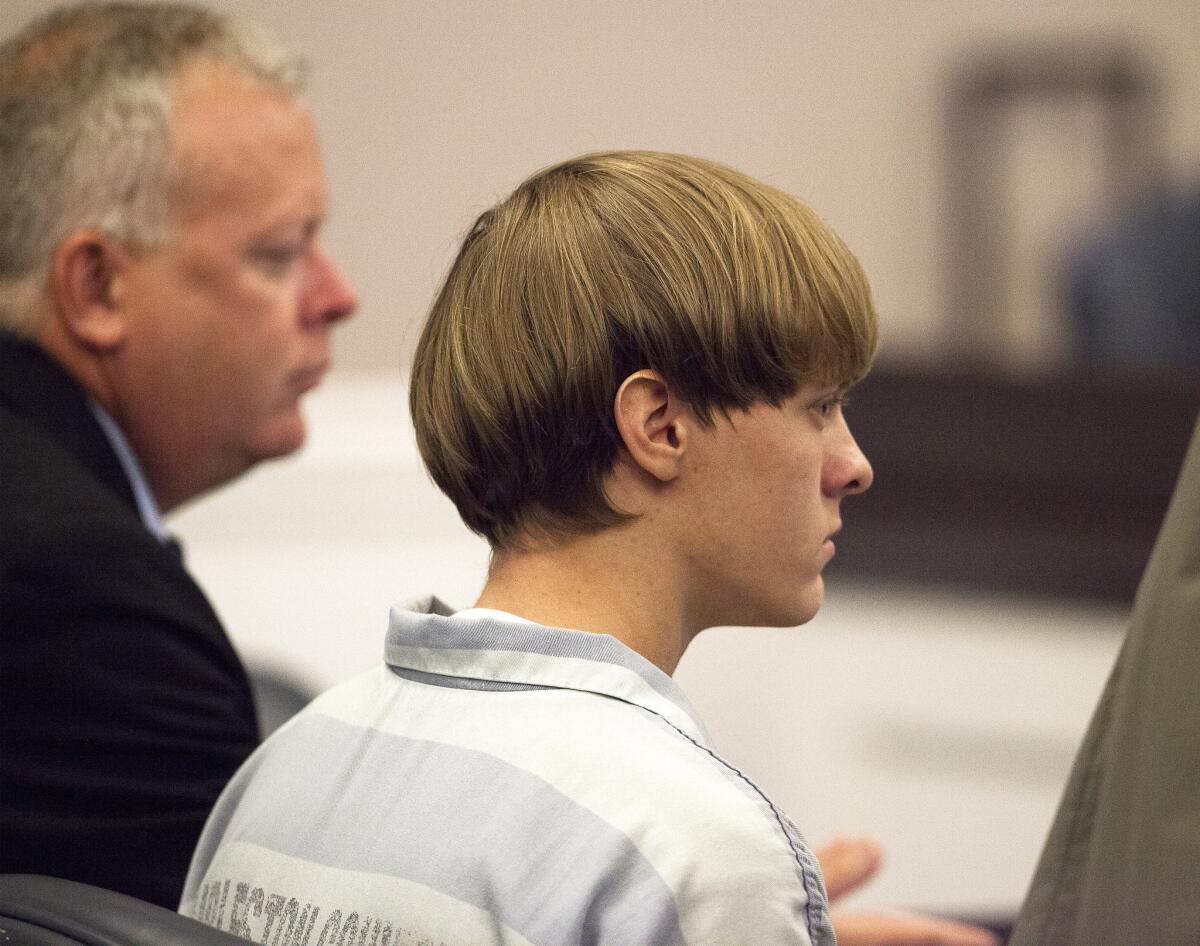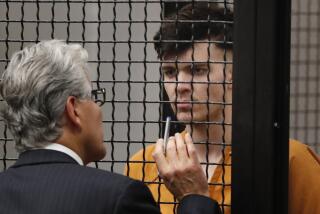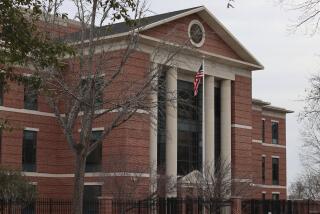Dylann Roof indicted on federal hate-crime charges in Charleston church shooting

Dylann Roof in court in Charleston, S.C., this month.
The U.S. government announced Wednesday the indictment of 21-year-old Dylann Roof on federal hate-crime charges, adding a civil rights dimension to the state murder charges already filed by South Carolina authorities in the June 17 killing of nine African American worshipers in Charleston.
A federal grand jury in Charleston indicted Roof on suspicion of using a weapon in a racially motivated hate crime and committing murder in an attempt to obstruct victims’ free exercise of their religious beliefs. The second charge carries the possibility of a federal death sentence, though it has been rarely invoked.
Atty. Gen. Loretta Lynch said at a news conference that no decision had been made on whether to seek the death penalty for Roof. But the new charges increase the likelihood that Roof might be prosecuted in federal, rather than state, court. Roof was previously charged with nine counts of murder in Charleston state court, where he also faces the death penalty.
“To carry out [his] twin goals of fanning racial flames and exacting revenge, Roof … decided to seek out and murder African Americans because of their race,” Lynch said. “An essential element of his plan, however, was to find his victims inside of a church, specifically an African American church, to ensure the greatest notoriety and attention to his actions.”
Authorities say Roof shot to death nine people during a Bible study class at Emanuel African Methodist Episcopal Church in Charleston. Roof walked into the church carrying a Glock .45-caliber pistol with eight magazines loaded with hollow-point bullets, which are designed to do maximum damage.
Because South Carolina has no hate-crime law, victims’ families and fellow congregants at Emanuel AME had called for Roof’s purported racial motivation to be formally addressed by bringing federal charges against him.
Lynch said it had not been decided who would prosecute Roof first. For now both cases will proceed simultaneously, and the final decision will take into consideration the desire “to reduce any unnecessary burden on the families,” she said.
In high-profile cases, it is not uncommon for federal prosecutors to bring their own charges.
“The point of this is simply to be there as a backup in case something goes wrong with the state prosecution, but it is also a statement of our national extreme concern over the horrors of the crime,” said William Yeomans, an American University law professor and a former top civil rights official at the Justice Department. “It’s a strong statement that racially motivated violence will be dealt with harshly, not only by the state, but by the federal government.”
Roof was not charged with terrorism because there is no domestic terrorism statute that would apply. Lynch declined to say whether she thought there should be one, but added that “racially motivated violence such as this is the original domestic terrorism.”
She added: “People may feel that because we have such a strong emphasis on terrorism matters since 9/11, that when we talk about matters and don’t use that terminology, that somehow we don’t consider those crimes as serious. And I want to be clear. Nothing could be further from the truth than that. This type of crime in particular, racially motivated violence, for which a federal law was specifically enacted to cover, is of grave importance to the federal government.”
Roof had told friends that he wanted to spark a race war. Documents linked to him are filled with racial animosity toward African Americans, and he appears to have posted pictures of himself posing in front of a Confederate flag.
South Carolina’s state Legislature voted this month to remove the Confederate flag from the grounds of the State House in Columbia.
Those killed in the shooting included the church’s pastor, the Rev. Clementa C. Pinckney, a 41-year-old father of two and a state senator; and three other ministers, the Revs. DePayne Middleton-Doctor, 49; Daniel L. Simmons Sr., 74; and Sharonda Singleton, 45. Also killed were Cynthia Hurd, 54; Myra Singleton-Thompson, 59; and three members of the same family: Susie Jackson, 87; her nephew Tywanza Sanders, 26; and her cousin Ethel Lance, 70.
President Obama eulogized Pinckney at the pastor’s funeral last month, singing “Amazing Grace” before a packed house.
Sanders’ mother, Felecia Sanders, survived the attack by pretending to be dead.
Days after the shooting, she confronted Roof via live video during his initial bond hearing.
“We welcomed you Wednesday night in our Bible study with open arms,” she told Roof. “You have killed some of the most beautifulest people that I know. Every fiber in my body hurts.
“As we said in Bible study, we enjoyed you, but may God have mercy on you,” she said.
Emanuel AME Church dates from the early 19th century and was a center in the fight against slavery. It has continued its role as a beacon for civil rights through the turbulent 1960s and to recent times.
Twitter: @timphelpsLAT
More to Read
Start your day right
Sign up for Essential California for news, features and recommendations from the L.A. Times and beyond in your inbox six days a week.
You may occasionally receive promotional content from the Los Angeles Times.







